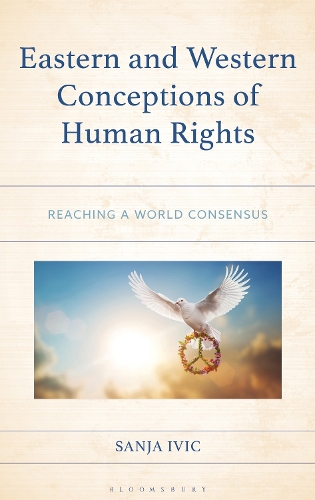
Eastern and Western Conceptions of Human Rights: Reaching a World Consensus
(Hardback)
Publishing Details
Eastern and Western Conceptions of Human Rights: Reaching a World Consensus
By (Author) Sanja Ivic
Bloomsbury Publishing PLC
Rowman & Littlefield Publishers
19th February 2026
United States
Classifications
Professional and Scholarly
Non Fiction
Social and political philosophy
Criticism and exegesis of sacred texts
Physical Properties
Hardback
208
Width 152mm, Height 229mm
Description
This book explores Western and non-Western conceptions of human dignity and human rights in order to demonstrate the hermeneutical nature of the concepts of human dignity and human rights, discussing examples of violations in Afghanistan, Myanmar, China, the EU, and the Western Balkans. While human rights are considered a universal framework for ensuring the dignity, rights, and freedoms of all human beings, their conceptualization and practice vary within different cultural, social, and philosophical traditions. While the Western tradition emphasizes the concept of inherent human dignity combined with an individualistic notion of autonomy and rights, in Islamic thought it is underpinned by morality and combined with duties and divine guidance, and the Confucian approach focuses on the harmony of society and relational ethics. The concepts of human dignity and human rights are contingent and dynamic categories, which means that they are open to different interpretations. Sanja Ivic also highlights the relevance of philosophical hermeneutics for legal and political studies. Drawing on the hermeneutical (interpretative) nature of human rights, this book explores different philosophical solutions to achieving a global consensus on human rights, engaging with thinkers such as Hans-Georg Gadamer, John Rawls, Charles Taylor, Gianni Vattimo, Onuma Yasuaki, and Dimitrije Mitrinovic.
Author Bio
Sanja Ivic is a principal research fellow in philosophy at the Institute for European Studies, Serbia.
